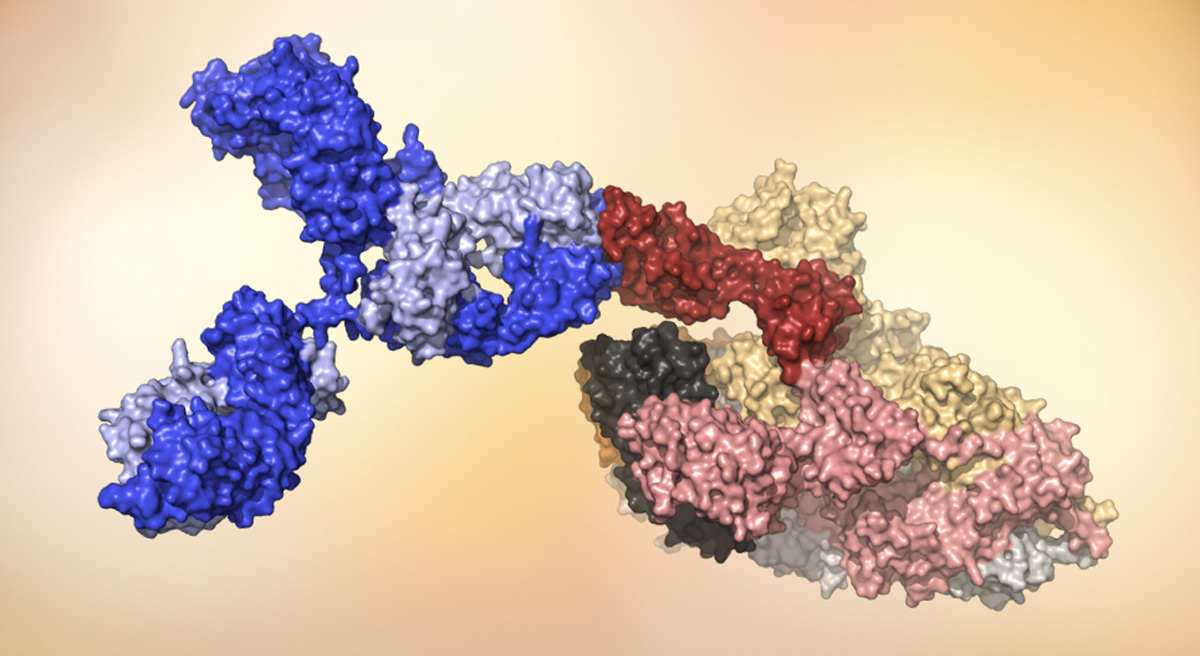
Scientists Find Super-potent Human Antibodies from Recovered COVID-19 Patients
June 17, 2020| |
Researchers from Scripps Research, International AIDS Vaccine Initiative (IAVI), and University of California San Diego School of Medicine discovered antibodies in the blood of patients who recovered from COVID-19 that provide powerful protection against SARS-CoV-2, the coronavirus that causes the disease, when tested in animals and human cell cultures. The research sets the stage for clinical trials and additional tests of the antibodies, which are now being produced as potential treatments and preventives for COVID-19.
Dr. Thomas Rogers, adjunct assistant professor in the Department of Immunology & Microbiology at Scripps Research, and assistant professor of Medicine at UC San Diego and his colleagues took blood samples from patients who had recovered from mild-to-severe COVID-19. In parallel, scientists at Scripps Research and IAVI developed test cells that express ACE2, the receptor that SARS-CoV-2 uses to get into human cells. In the initial experiments, the team tested whether antibody-containing blood from the patients could bind to the virus and strongly block it from infecting the test cells.
In less than seven weeks, the scientists were able to isolate more than 1,000 distinct antibody-producing immune cells, called B cells, each producing a distinct anti-SARS-CoV-2 antibody. The team then obtained the antibody gene sequences from these B cells so that they could produce the antibodies in the laboratory. The team screened these antibodies individually and identified several that, even in tiny quantities, could block the virus in test cells, and one that could also protect hamsters against heavy viral exposure. In their attempts to isolate anti-SARS-CoV-2 antibodies from the COVID-19 patients, the researchers also found one that can also neutralize SARS-CoV, the related coronavirus that caused the 2002-2004 outbreak of severe acute respiratory syndrome (SARS) in Asia.
For more details, read the article in Scripps Research News and Events.
| |
You might also like:
- Researchers Discover Antibody that Blocks SARS-CoV-2 Infection in Cells
- First Results from Human COVID-19 Immunology Study Identify Universally Effective Antibodies
- CRISPR Technique 90% Effective in Reducing SARS-CoV-2 Coronavirus
Biotech Updates is a weekly newsletter of ISAAA, a not-for-profit organization. It is distributed for free to over 22,000 subscribers worldwide to inform them about the key developments in biosciences, especially in biotechnology. Your support will help us in our mission to feed the world with knowledge. You can help by donating as little as $10.
-
See more articles:
-
News from Around the World
- Soil Health Trailblazer is 2020 World Food Prize Laureate
- Genome Editing 101: Healthcare and Industrial Applications and Regulations
- Australian OGTR Authorizes Clinical Trial of GM Influenza Vaccine
- World Experts Release Roadmap for Next Generation Crops
-
Research Highlights
- Israeli Scientists Discover Possibilities of Plant-Sustained Electricity
- Study Reveals Transgenic Goats Can be Used to Produce Antibodies Against Cancer
- OsCpn60β1 Vital for Chloroplast Development in Rice, Study
-
Plant
- High-Efficiency Reduction of Rice Amylose Content via CRISPR-Cas9-Mediated Base Editing
- New Protocol: Genome Editing Using Rice Zygotes
-
Health
- Scientists Find Super-potent Human Antibodies from Recovered COVID-19 Patients
-
Read the latest: - Biotech Updates (December 3, 2025)
- Gene Editing Supplement (November 26, 2025)
- Gene Drive Supplement (February 22, 2023)
-
Subscribe to BU: - Share
- Tweet

